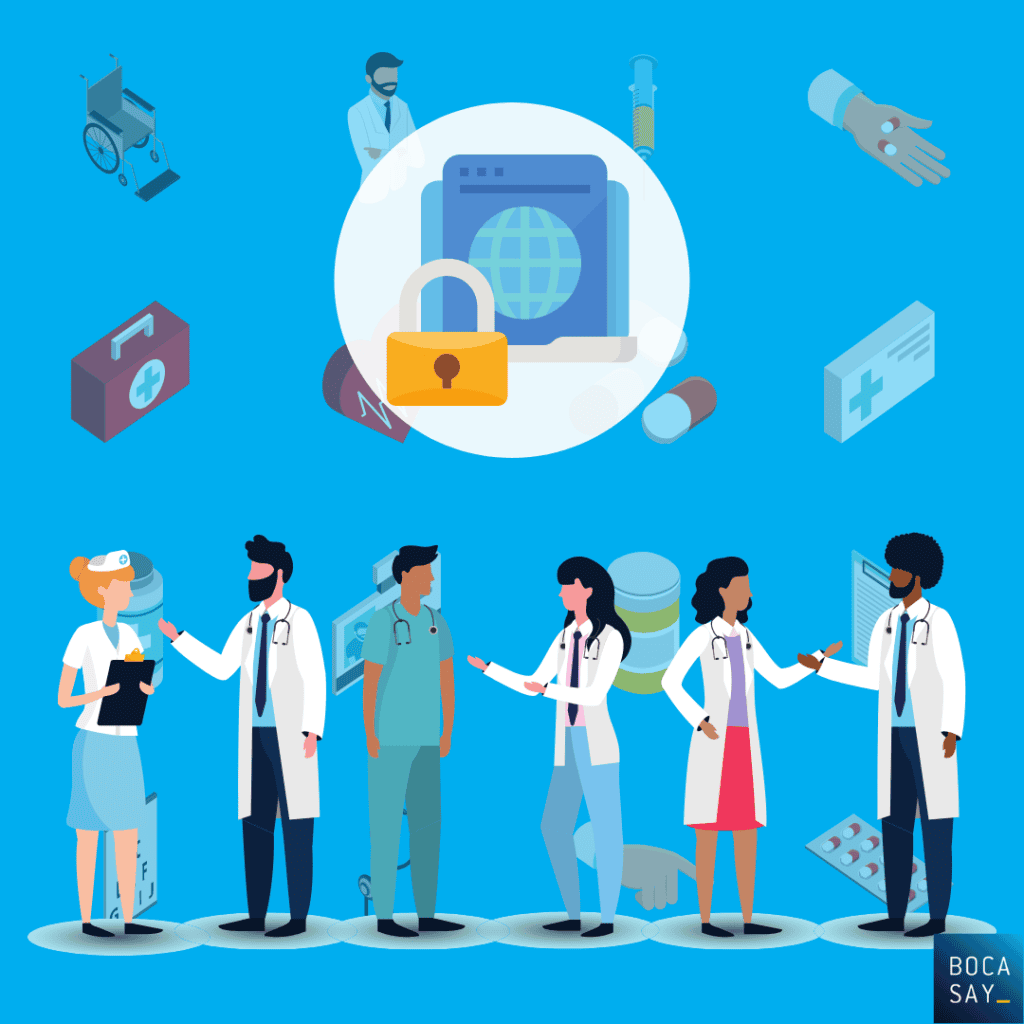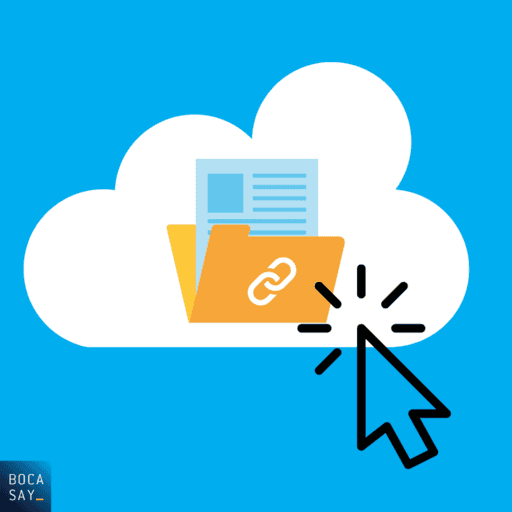5 Ways Blockchain Technology is Transforming Healthcare
For at least a decade, blockchain technology has been widely known as the building block of the Bitcoin cryptocurrency. More recently, by demonstrating huge potential for optimizing traditional healthcare industry practices, it became apparent that the fin-tech industry is not the only industry that can benefit from a wider application of blockchain technology. Companies like Bocasay, offers IT solutions from their Vietnam offshore development center service.
The world’s healthcare systems can benefit from implementing blockchain technology because it offers a unique ability to access, store and share medical data securely. In this article, we’ll begin by exploring the essential aspects of blockchain technology and continue by showcasing how it can transform the healthcare industry in 5 key areas.

What is Blockchain Technology?
You can think of blockchain technology as nothing more than a data warehouse, a secure and decentralized database able to record, store and validate the integrity of shared data. By eliminating the need for a central data administrator, blockchain technology is remarkably secure and hacker-proof as it can effectively control data access through a shared digital ledger. The technology’s unique data-handling advantages include the following:
- Decentralization: By default, blockchain technology is a decentralized procedure, which means that there isn’t a single authority that is able to control data flow, storage and access.
- Transparency: Blockchain technology is transparent because ultimately anyone with network authorization can have full access and replicate the data stored on a blockchain database.
- Consensus: Since all parties sharing data within the blockchain can maintain exact copies of the same ledger, and must agree on all new data added, blockchain establishes consensus.
- Conflict-Resolution: Data-conflicts are non-existent because only new data can be added to the blockchain – old data can’t be changed and new entries can’t contradict previous entries.
Let’s proceed with 5 key healthcare areas in which blockchain technology is already having an impact.
Healthcare Fraud
Healthcare fraud is a costly crime that involves submitting fake healthcare claims in order to make a profit. In the US, approximately $30million is lost through Medicare fraud every year.
While this type of crime can take many forms, common examples include patients selling unneeded medication on the black market and doctors charging for services they didn’t deliver.
The verification of healthcare claims is still mostly done manually, often resulting in errors, missing or fraudulent information, and long processing times caused by various intermediaries.
By using an automated blockchain system in order to process health claims, medical accountability is imposed, as it becomes almost impossible to mimic, manipulate or falsify data.
Apart from significantly lowering admin costs linked to claims, blockchain tech can also reduce claim processing times and eventually make some health insurance intermediaries obsolete.
For example, Chronicled uses the blockchain technology in its MediLedger Network to securely connect medical providers and institutions, establishing trust without constant security threats.
𝕐𝕠𝕦 𝕨𝕒𝕟𝕥 𝕥𝕠 𝕕𝕖𝕧𝕖𝕝𝕠𝕡 𝕒𝕟 𝕀𝕋 𝕡𝕣𝕠𝕛𝕖𝕔𝕥 𝕚𝕟𝕧𝕠𝕝𝕧𝕚𝕟𝕘 𝕓𝕝𝕠𝕔𝕜𝕔𝕙𝕒𝕚𝕟 𝕥𝕖𝕔𝕙𝕟𝕠𝕝𝕠𝕘𝕪 ? 𝔸𝕥 𝔹𝕠𝕔𝕒𝕤𝕒𝕪’𝕤 𝕧𝕚𝕖𝕥𝕟𝕒𝕞 𝕠𝕗𝕗𝕤𝕙𝕠𝕣𝕖 𝕕𝕖𝕧𝕖𝕝𝕠𝕡𝕞𝕖𝕟𝕥 𝕔𝕖𝕟𝕥𝕖𝕣 𝕤𝕖𝕣𝕧𝕚𝕔𝕖, 𝕠𝕦𝕣 𝕥𝕖𝕒𝕞 𝕠𝕗 𝕢𝕦𝕒𝕝𝕚𝕗𝕚𝕖𝕕 𝕕𝕖𝕧𝕖𝕝𝕠𝕡𝕖𝕣𝕤 𝕔𝕒𝕟 𝕙𝕖𝕝𝕡 𝕪𝕠𝕦 𝕨𝕚𝕥𝕙 𝕤𝕠𝕡𝕙𝕚𝕤𝕥𝕚𝕔𝕒𝕥𝕖𝕕 𝕀𝕋 𝕤𝕠𝕝𝕦𝕥𝕚𝕠𝕟𝕤. ℂ𝕠𝕟𝕥𝕒𝕔𝕥 𝕦𝕤 !
Medical Data Management
A major problem facing global healthcare systems is the incompatibility of medical data storage solutions used by different hospitals, providers and medical institutions around the world.
Unfortunately, it is common for healthcare providers who have an incomplete view of their patient’s full medical history to waste time and money on unnecessary tests and treatments.
According to research by the John Hopkins University in 2016, medical errors, resulting from insufficient or uncoordinated treatment, are the third leading cause of death in the US.
As patients scatter their medical data across different healthcare organizations and providers during a lifetime, access to critical past history data is often limited or entirely lost.
Attaching patients’ medical records to a blockchain system drastically optimizes their credibility, accuracy and availability for coordinated treatment between different medical institutions.
Medicalchain is an example of a company using blockchain technology in order to create a smart medical ecosystem that enables patients to be in control of their medical data.

Supply-Chain Transparency
Confirming the authenticity of medical products is a challenge across the healthcare industry as counterfeit medications cause tens of thousands of deaths in developing markets every year.
Even if it is possible to request for an authenticity certificate when purchasing pharmaceuticals online for example, fraudsters can still easily provide fake documents and get away with it.
It is no surprise that corporate giants like IBM, Walmart and UPS are already using blockchain technology systems in order to optimize the integrity and transparency of their supply chains.
Tracking medical items from their manufacturing point all the way to their delivery, by using a blockchain-based system, offers health customers full visibility and control over their purchases.
Real-time access to detailed information for every transaction related to pharmaceutical products can significantly improve traceability, transparency, compliance and customer trust.
MediLedger is a blockchain protocol that eliminates errors and disputes by enabling prescription drug suppliers to monitor and verify pharmaceutical authenticity and drug expiry dates.
Medical Credential Verification
Medical credentialing is still more or less a manual process without a universal and secure way to manage and verify the authenticity of healthcare providers’ qualification data collectively.
Establishing transparency and trust, blockchain technology can be deployed in order to track the work histories of medical professionals across different institutions throughout their careers.
Trusted medical organizations and healthcare institutions can submit credential data for their staff into a universal blockchain-based system as an effective way to streamline hiring processes.
In addition, a secure one-stop source for medical credentials running on blockchain provides an opportunity for medical practitioners and insurers to monetise their existing credentials data.
Allowing for the transparent, secure and efficient sharing of credential data across healthcare organizations, blockchain reduces verification admin costs and eliminates intermediaries.
Based on the R3 Corda blockchain protocol, US-based ProCredEx has developed a medical credential verification system that addresses the needs and maximizes credential data value.
Internet of Things (IoT) Security
The Internet of Things (IoT) is nothing more than an ever-growing network of smart, interconnected devices that are able to collect and distribute data in real-time over the internet.
With the digital transformation of the healthcare industry well underway, remote patient monitoring tools such as sensors and wearable devices are already having a positive impact.
Digital health tools provide medical professionals with real-time visibility into their patients’ health status, essentially enabling more proactive care and preventive treatment measures.
There is no doubt that security is and will be a major issue within the healthcare IoT industry. Patients’ medical data must remain private, secure and protected from being tampered with.
Blockchain systems could record patient data on digital ledgers, ensuring that only authorized parties can access personal information and making data manipulation nearly impossible.
Dynostics is a company based in Germany that assists individuals to determine and track their fitness status by providing real-time feedback and a single secure location for all relevant data.